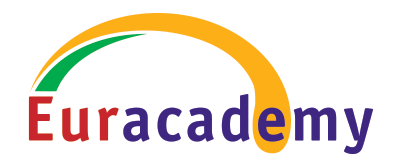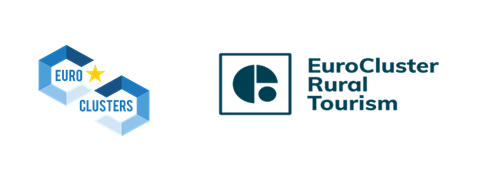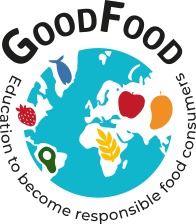Taking part in trans-national projects is an integral part of Euracademy’s activity that builds its capacity as an organisation, its expertise, its exposure across Europe, and its membership.
Currently running projects
CO-GREEN
Community-based action for a green transition. The CO-GREEN action develops an intervention model that supports community development in ecological transition, incorporating the values, principles and sustainable practices that characterise the Green Deal.
Started November 2022
EU-Rural Turism
This project, launched in September 2022, aims to help micro and nano SMEs in the tourism sector through the structure of a Eurocluster – ERT. Traditionally based on local or regional demand, this sector has now the opportunity to extend markets by working together on a transnational base in the Eurocluster Rural Tourism – ERT.
Related Links
https://www.facebook.com/eururaltourism
https://www.linkedin.com/company/eu-rural-tourism/
Started November 2022
REGINA
Regenerative Agriculture. An innovative approach towards mitigation of climate change through multi-tier learning.
The project places an emphasize on Regenerative Agriculture, that can offer substantial results for sustainable farming by enhancing biodiversity “above and below the ground surface”, thus contributing to increased water and nutrient use efficiency and to improved and sustained crop production.
Related Links
Started November 2021
GOODFOOD
GOODFOOD is an Erasmus+ Cooperation partnership project, started in November 2021, with the participation of 3 European countries (Greece, Spain and Italy) and 7 project partners.
GOODFOOD will develop Methodology and Learning Modules on relevant topics regarding the food chain and the food nutritional value for secondary schools, fostering an integrated STEAM approach, inquiry-based learning and the integration of Art in audio-visual forms.
Started November 2021
Former projects
ENVOLWE
Nature Based Entrepreneurs and Vocational Education Training Providers Learning and Working Together. Increasing and diversifying cooperation between enterprises and vocational training is continuously enhanced in various EU and national policies in order to enhance the competitive and dynamic knowledge-based economical growth in Europe (e.g. Lisbon Strategy, Education & Training 2010 Work Programme). Envolwe was a two-year transnational project financed in part by the European Commission in the context of Leonardo Da Vinci’s Lifelong Learning Programme. The overall objective of the project was to increase the quality and attractiveness of VET by strengthening the cooperation between VET and micro enterprises and providing practical tools for it. You may also download a copy of ENVOLWE brochure and one of the core publications of the project, the Handbook on VET and small business cooperation.
EMRA – European Masters Programme for Rural Animators
A project funded under the EC Lifelong Learning Programme, ERASMUS, Multilateral, Curriculum Development Projects. The project is led by the Euracademy member, Nicolaus Coppernicus University and will be coordinated by Euracademy Association and supported by a partnership of 7 European Universities. The aim of the project is to create a new interdisciplinary European Masters programme, intending to make a direct contribution to sustainable rural development by explicitly establishing the profession of rural animator and by offering the necessary education and competence building as well as the appropriate qualification to consolidate this profession. The end product will be a complete programme of studies at Masters level (EMRA- European Masters Programme for Rural Animators ), which will be managed jointly by the consortium of the project, and will target graduates in humanities/social sciences as well as agronomy, land use planning, geography etc., both mid-career professionals holding a B.A or B.Sc and graduates who just completed their first degree. Further information is available at http://www.rural-animator.umk.pl/
E-ruralnet – Network promoting e-learning for rural development
A project funded under the Lifelong Leaning Programme, Centralised Project & Networks (ICT). The project was led by Euracademy Association and supported by a partnership of 12 organisations related to lifelong learning. The project addressed the issue of enhancing lifelong learning opportunities in rural areas using ICT. Previous research of Euracademy Observatory identified important constraints not allowing the rural workforce to take advantage of ICT enabled learning, mostly related to infrastructure and low personal motivation, and marked differences between countries, signifying that national policy contexts and the e-learning market dictate access to e- learning. Building on the Observatory experience, the issues of “needs” and “constraints” related to e-learning were further investigated from the viewpoint of innovation and creativity and linked to rural development. Networking was employed as the central method for achieving the aims of the project. Project activities and outputs supported networking in the 11 participating countries, addressing the key stakeholders of e-learning (providers, social partners, policy makers). The project was completed in 2011. Further information is available at www.e-ruralnet.eu
ECO-DESTINET – A Network Developing a European Quality Label for Eco-tourism Destinations
A project funded under the Lifelong Leaning Programme, Leonardo Strand, Italy. This project was led by the Italian National ~Research Council, Institute of Bio-Meteorology, in Florence, and was supported by a partnership of eight organisations, including Euracademy Association. The aim of the project was to produce and apply in practice training materials, curricula, methodologies and back up support for trainers of ecotourism service providers across Europe, to facilitate the harmonisation of existing quality labels and to enable the efficient implementation of a European Ecotourism Labelling Standard (EETLS). For this purpose, a blueprint of the EETLS was prepared by the project team. The experience of the project partnership was shared and exchanged with a wide network of national and European organisations specialising in tourism-related quality labelling, sustainable rural development and tourism-related training. The project was completed in November 2009. Information is available at www.ecoroute.eu
CULT-RURAL: Promotion of a Cultural Area Common to European Rural Communities
A three-year project funded by the European Commission, CULTURE 2000 Programme, Directorate General Education and Culture. The project was coordinated by the Swedish Local Heritage Federation, in partnership with Euracademy Association and other organisations from seven European countries. The project aimed to show in a practical and illustrative way the connection between cultural heritage and sustainable rural development, as well as promoting cooperation and networking between ethnographic/rural heritage museums and other public or private organisations related to rural development, encouraging them to ‘open their doors’ to transnational cooperation and intercultural dialogue. The project also aimed to improve the skills of professionals in the fields of rural heritage and rural development and attract the younger generation to enjoy the lessons learnt from heritage. To achieve its aims, the project supported the 6th summer academy of Euracademy Association on the theme of “Culture and Sustainable Rural Development” that took place in Chania, Crete, Greece in August 2007; and then organised 9 transnational exhibitions in 8 European countries, based on three themes that linked cultural heritage and sustainable development: the landscape as heritage, the technology of rural economy as part of heritage; and symbolism as part of everyday reality, building the identity of rural communities. The first exhibition opened in Poland in May 2008 and can be viewed, together with other reports and activities of the project in www.cultrural.net
LLL-INCLUSION: The Impact of Life-Long Learning policies on the inclusion of vulnerable groups
This research project, led by the Euracademy Association, aimed to investigate the impact of lifelong learning (LLL) policies on the prospects of inclusion of vulnerable groups, and in particular immigrants, ethnic minorities and marginalized rural populations. More specifically the project looked at a) the policies and strategies included in the NAPs/incl which address lifelong learning for the above target groups; b) other policies that refer directly to the target groups in the NAPs/incl, such as employment, social insurance, culture etc c) the policies adopted by national authorities to implement and support further the NAPs; d) the mechanisms for the implementation of these policies. The two types of policies, i.e LLL policies and other inclusion policies were then cross-referenced to identify policy synergies and complementarities. The project also sought the opinion and experience of the organizations that implement the above policies, and the reaction of organizations that represent the target groups, in order to assess the strong and weak points of the adopted policies “on the ground”, i.e. at the implementation stage, including the results and impact on the target groups. The project ended in 2007.
Euracademy Observatory: A European Observatory of the use of ICT-supported Life Long Learning by SMEs, Micro-Enterprises and the Self-employed in Rural Areas.
A two-year project funded by the European Commission, Reference Material strand of the Leonardo Da Vinci Programme. It was led by the University of Helsinki, Ruralia Institute and supported by Euracademy Association and seven other partners, all corporate members of the Association. The project aimed to build systematic documentation on the use of ICT supported learning, including blended learning, by employees of SMEs and micro-enterprises in rural Europe, leading to formal qualifications or to non-validated skill acquisition or to personal development. Such documentation was collected through surveys in the 8 participating countries. The surveys addressed training providers and training recipients in rural areas, as well as other rural SMEs who had not used supported training. The information collected through online questionnaires and interviews in 8 countries was used to create a databank of comparative data. Complementary information was also presented regarding best practice and the policy framework in the participating countries and the European Union more generally. Euracademy Association signed agreements with the other project partners to continue updating the Observatory data regularly, through repeated surveys. The results of the Observatory are published electronically and accessible at www.euracademy-observatory.org and are aimed at training organisations, social partners, policy makers, NGOs and individuals with an interest and a role in ICT-supported learning in rural areas. The Observatory funding period ended in 2007, but the research material is still available online.
Developing Sustainable Rural Tourism
This project aimed to assist local or regional organisations of the public and voluntary sectors in rural areas of Ukraine to enhance their capacity as leaders of rural development by acquiring the necessary skills and competences to plan, manage and animate the development of sustainable rural tourism more efficiently. The project addressed in particular middle level managers and animators of rural development, working in local/regional authorities, local development agencies, NGOs, Farmers’ or SMEs Associations and any other organisation of the civil society that play a role in rural social and economic development. The main activities included: the organisation of a 10-day Summer School in Ukraine in May 2006 on the theme of “Developing Sustainable Rural Tourism”; the production of a manual for the above course including examples from around Europe; the establishment of a website to disseminate the project results and run an Internet-based distance learning package on the above theme; the provision of technical assistance to the participants of the Summer School to support local pilot actions on sustainable rural tourism in their regions; and the organisation of an international conference to expand the network of rural leaders and disseminate the project results. Euracademy Association was the Project Leader. The project ended in 2007.
EURO-VALIDATION: Pan-European System of Lifelong Learning Validation for Sustainable Rural Development
A three-year project approved by the European Commission, Leonardo da Vinci programme, Networks strand. The partnership comprised a transnational network of educational and training organisations, including all the Euracademy project partners, the Euracademy Association and new partners in order to expand the pan-European dimension of the project. Its overall aim was to promote, through a wide network of relevant organisations all over Europe, policies and practices of validation and certification of lifelong learning, with special reference to the skills and competences necessary to enhance sustainable rural development. The project addressed two types of needs. Firstly, the need to ensure equality of access to qualifications by all people. Secondly, the need to recognise the importance of lifelong learning in a rural context, including all forms of learning that contribute to capacity building for sustainable development. EURO-VALIDATION targeted all the “stakeholders” involved in lifelong learning, either as providers, certification agents or recipients, with special reference to the needs and requirements of the rural economy and society. It was based on the successful Euracademy project which created innovative material and delivery methods for non-formal learning. The project ended in 2007.




